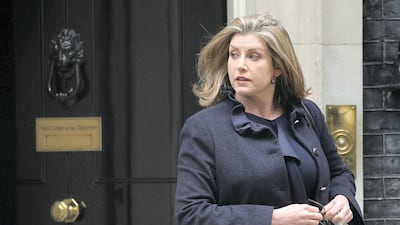British government officials reaffirmed Whitehall's ban on contacts with the Muslim Council of Britain over concerns the organisation has launched a new influence campaign.
The statement reiterating the policy came after a junior minister Penny Mordaunt met the secretary general of the MCB Zara Mohammed ahead of International Women's Day.
Ms Mordaunt claimed the meeting had taken place in her capacity as an MP working on constituency matters. However, the meeting was described as a breach of the decade-long policy of blacklisting the group. Yahya Birt, a commentator, asked if it represented a "crack in the ice" for a group that has been frozen out over extremism concerns.
Downing Street officials moved to quash the speculation. “The UK government has a long-standing policy of not engaging with the MCB and that has not changed,” a representative said.
Charles Moore, a visiting fellow at Policy Exchange think tank and former Daily Telegraph editor, warned the government that recognising Islamists would sideline moderate voices.
Senior ministers told the newspaper that Ms Mordaunt had erred. “You can’t really separate being a minister and an MP,” said one, while another official cast doubt on Ms Mordaunt's explanation and suggested she was “refusing to stick to the line”.
The MCB is leading a boycott of the government's review of counter-extremism policies, called Prevent, and has been highly critical of the man appointed to oversee that process, William Shawcross.
Neil Basu, the country's top terrorism police officer, said the campaign against the review of Prevent would be damaging.
“I would urge them to reconsider, because only when all sides of the discussion are heard can this review achieve what it sets out to achieve," he said. “I have always believed and stated publicly that Prevent is the most important pillar of our counter-terrorism strategy, and counter-terrorism police have long been advocates of an independent review.
"It is with great disappointment that I read some key groups plan to boycott the review altogether."
Conservative MP Nusrat Ghani told The National earlier this month that it was very important the review is able to address new extremist threats.
"Vested interests have consistently been negative about the Prevent strategy and the issue there is do those 'gatekeepers' really represent the community – those who are most vulnerable to having their children radicalised," she said.
"Do we continue to deal with the gatekeepers who tell us one story but when we research the views of the community there is a very different story altogether?"


